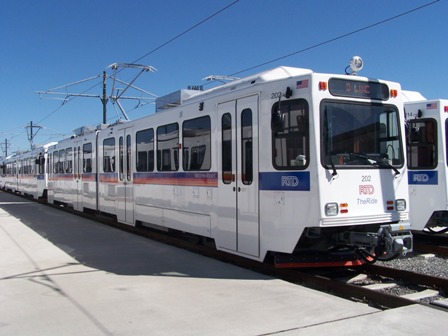
Officials at the University of Colorado have asked the Regional Transportation District (RTD) to revise plans for a new light rail installation near the Anschutz Medical Campus in Aurora, Colo. in order to protect sensitive equipment in the medical and research facilities on campus from vibrations and electromagnetic interference.
In a letter to the RTD, University of Colorado President Bruce Benson asked the RTD to move the line half a mile north of the medical campus to prevent passing trains from affecting equipment in University Hospital, Children’s Hospital, Veteran’s Administration Hospital and the research labs in the Fitzsimons bioscience and technology park.
While Benson acknowledged that a large amount of preliminary planning for the light rail line has already been completed, he said the campus must maintain the campus’ research income by taking “every step possible to preserve an environment that accommodates this highly-sensitive equipment in support of our federal and private sector research activities.”
“At present, the medical research community has very limited history and experience with the interface of sensitive medical research equipment and the kinds of EMI and vibration that will be generated by a light rail in close proximity,” Benson wrote.
“We have consulted experts on this matter and investigated the experience of other medical campuses that have encountered this same problem.”
Based upon work completed by other medical campuses located in close proximity to rail lines, Benson estimated mitigation measures could cost up to $60 million, with no guarantee to be “as effective as would be needed for the research requirements of a pre-eminent university.” The Anschutz campus houses $1.5 billion of clinical facilities and is home to approximately $500 million of grant-funded medical research annually.
None of the campus’ partner organizations have budgeted for these unexpected costs, Benson added.
RTD general manager Phil Washington told the Denver Post that the transportation district, which relies primarily on tax money for funding, hasn’t budgeted for mitigation either.
“We don’t have the budget yet to handle something like this,” he said.
The RTD board of directors will review Benson’s request in June.






